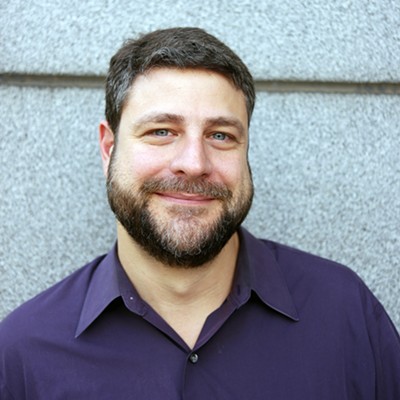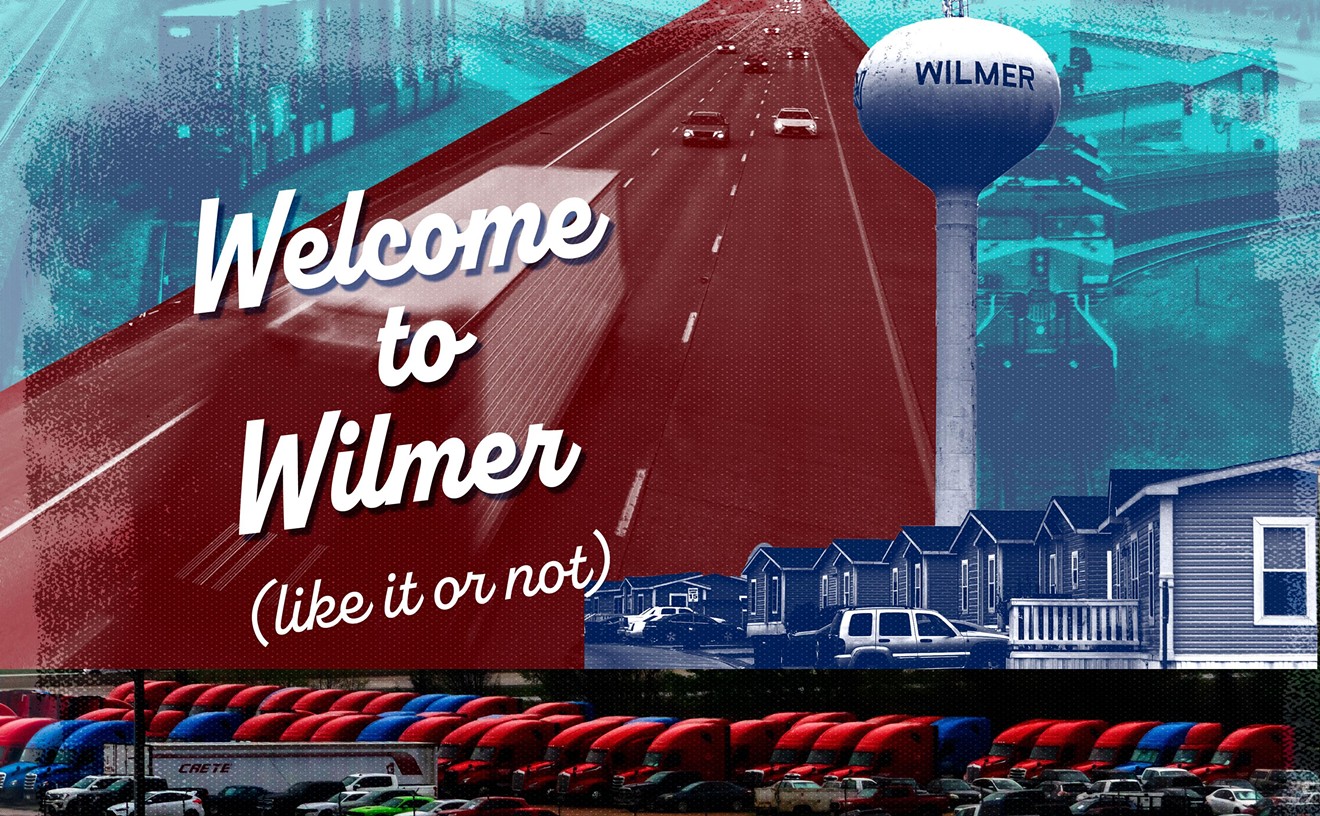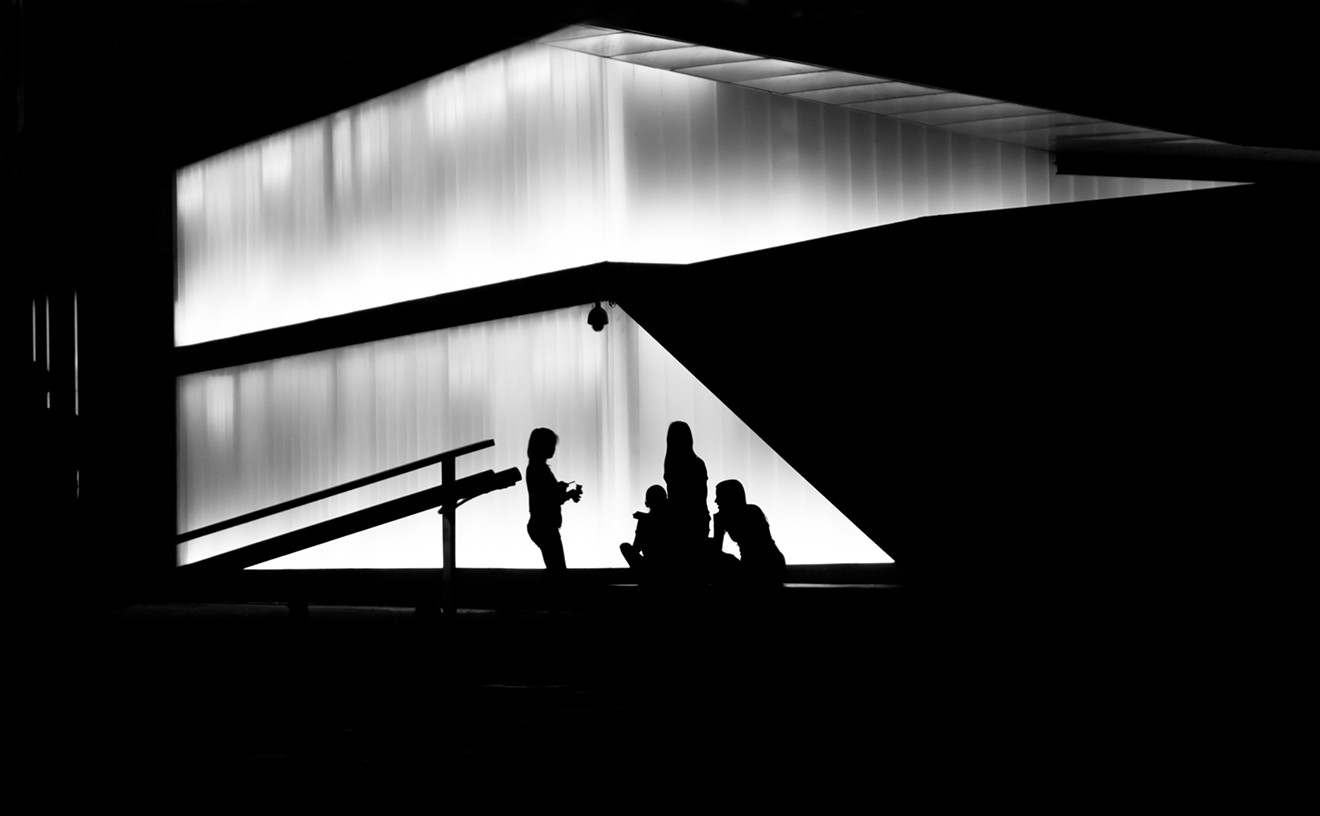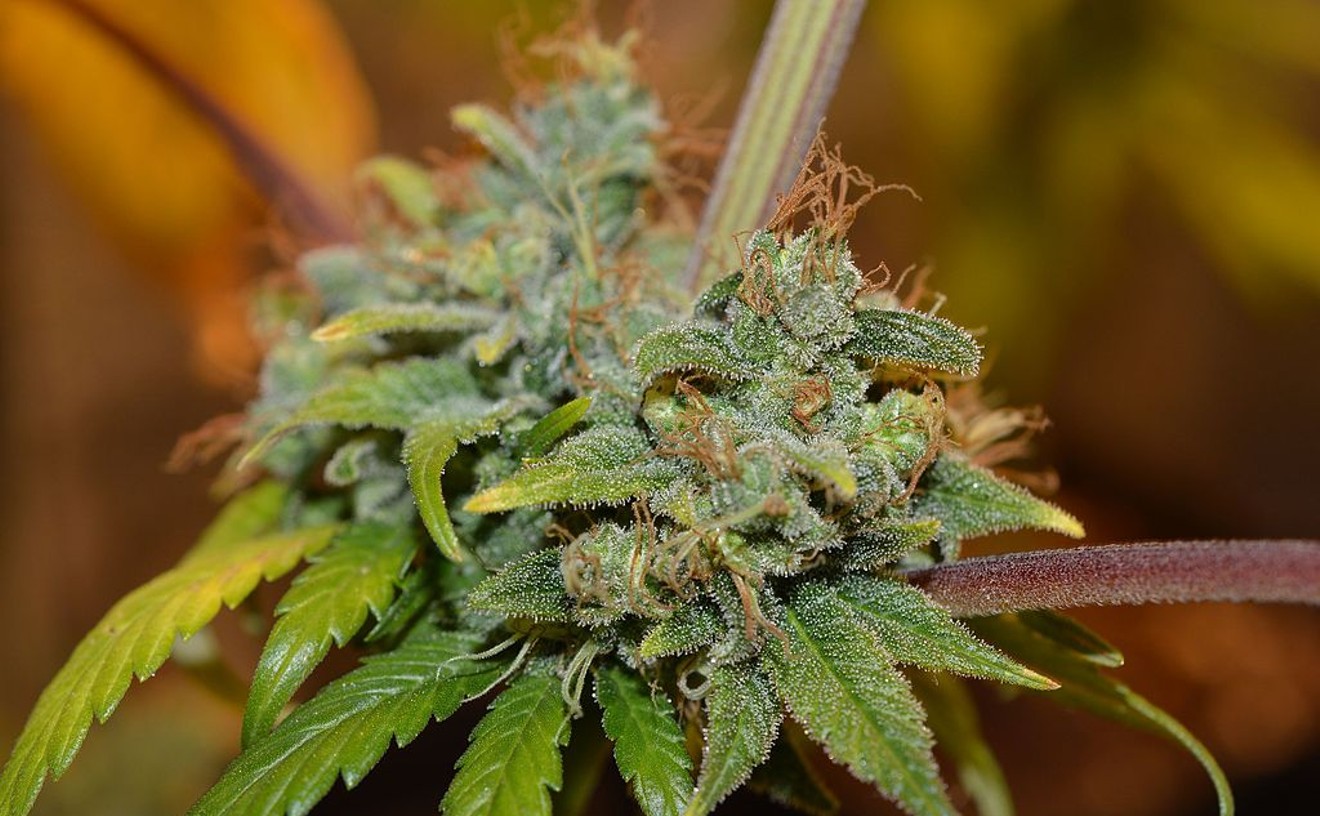"...Persons of humanitarian and reformist disposition often go...to the Balkan peninsula to see who was in fact ill-treating whom...all came back with a pet Balkan people established in their hearts as suffering and innocent, eternally the massacre and never the massacrer."
--Rebecca West in "Black Lamb and Grey Falcon" (1938)
On April 23, 1999, Nazar "Nick" Mehmeti stood outside the White House and chanted at Bill Clinton. The Albanian-American was one of hundreds there in support of NATO intervention in the Balkans. More than 4,000 miles away, bombs were crashing into the soil of Kosovo and Serbia, marking the historic apex of the U.S.-ethnic Albanian relationship.
A reporter approached Mehmeti, operator of several strip clubs and sports bars in Dallas, and asked why he had flown hundreds of miles to attend the rally. "We support the NATO troops, but we want them to put in ground troops also," he told the reporter. "Better yet, arm the KLA [Kosovo Liberation Army] and we can take care of our own."
The campaign and vilification of Slobodan Milosevic and his Serbs was an explosive validation of ethnic Albanian beliefs, and Mehmeti wanted to bask in it. Finally the world was acknowledging that its Serbian arch-foes were a thuggish band of criminals. It was a once-in-a-millennium opportunity for ethnic Albanians hoping to create a "greater Albania" with their self-considered historical lands, lands first occupied by the Ottoman Turk empire, then sliced and distributed like a pizza by European powers after World War I after the Turks were driven out.
Mehmeti retains the attachment to his nationalistic roots that is so common among first-generation immigrants. For ethnic Albanians in the United States, that also means supporting their people's often violent struggles in the Balkans, and on this front Mehmeti has distinguished himself. The founder of a national fund-raiser for the KLA, the violent underground movement whose acts prompted the fierce Serbian crackdown that in turn sparked the Kosovo intervention, said that Mehmeti donated more than a million dollars to the rebels, making him the largest donor in Dallas' Albanian community.
Mehmeti wouldn't return calls to validate how much he donated, but it's clear that he isn't alone locally in his support for the KLA: One-tenth of the money gathered in the rebels' U.S. fund-raising effort was raised in Dallas.
Not surprising, since the almost 2,000 ethnic Albanians in Dallas are a tight and nationalistic bunch, even though the thousands living in other metropolitan areas like Brooklyn dwarf their numbers. Here they stick close together, not only with social and cultural bonds but also through a support network of Italian pizzerias, a market that ethnic Albanians have dominated here since the 1980s.
But like so many immigrant groups, ethnic Albanians have found their niche in Texas much easier than finding a niche in their ancestral homes in Europe. And despite the close ties that bind, the newer generation Albanians are becoming accustomed to their lives in the United States, and their Albanian fervor is noticeably lower. The traditional dilemma of immigrants that pits the American culture against their homelands takes a dramatic turn as the Balkans is again torn by violence. That strife drives the community in Dallas together, gathering in Albanian American Community Center in Carrollton, serving as couriers bearing money for humanitarian or military uses and reinforcing the networks that the Albanian population has maintained here for two decades.
Over time, the pleasures and immediacy of American life overwhelm Balkan miseries. While remaining proud and patriotic, the newer generation doesn't rise to the level of nationalism that marks its predecessors or committed figures like Mehmeti.
For some, this disassociation is as simple as taking a bride. "I am the next generation, but I went the wrong way. I married an American girl. They don't think too much of that," says Agron "Roni" Sulejmani, whose father was one of the first to bring his family to Dallas in the early 1980s. "We don't get treated like other couples do, but that's fine. They're not what makes my world go 'round."
This week, Roni Sulejmani is opening a pizzeria called Luigi's Italian Café on FM 3040, near Flower Mound. This rather routine event is the latest entry in a story that extends across a generation; the family history of this 30-year-old entrepreneur is emblematic of the story of dozens of ethnic Albanian families here.
In the early 1980s, Sulejmani's father opened a pizzeria and named it after himself; Luigi's Pizza opened on Park Lane in Dallas. They estimate that they were the second ethnic Albanian family in Dallas, the first family being their cousin, who owned a successful pizzeria in Redbird Mall.
"He called my dad and said, 'Move to Dallas; this is where it's at.' So we sold everything in Philadelphia and moved," Roni Sulejmani says. "So I guess we were the second family of Albanians in Dallas."
Luigi Sulejmani opened eight pizza stores and sold all but one; he still operates a pizzeria on Mockingbird Lane. The successful business in America was combined with an effort to keep the Sulejmani kids, born in Philadelphia, aware of their Albanian roots. For almost 10 years they traveled to Macedonia every summer, teaching young Agron to speak Albanian.
Back in Texas, Agron was "Roni," learning the food-service trade and harboring his own ambitions. "Either you're a worker or you're an owner making money," he says. "I worked with my father and with other Albanian guys at various restaurants, before I decided to do something for myself. In the restaurant business you can make a decent living, but you can't feed three families off one restaurant."
Feeding a family is high on his list of priorities; his second daughter was born several months ago, and his first is 3 years old. Although he plans to introduce the Balkans to his children through frequent visits, as his father did, he is becoming unabashedly Americanized.
"I want to let them [his children] grow up in the American way," he says. "Our whole family lifestyle, I guess you could call it American."
Since the opening of the pizzeria by Luigi Sulejmani's cousin in 1979, nearly 90 Albanian-owned restaurants have opened in the DFW area. The story of the Albanian domination of the pizza business explains a lot about how the community sprang up here and thrived while remaining bound tightly together, despite creeping Americanization.
Dallas has a network of support for new arrivals, including no-interest bank loans between Albanian owners and an understanding that any new Albanian-owned restaurant needs to be more than a mile away from another. Every month or two, new accounts for Albanian-owned restaurants are opened with Lisanti Foods of Texas, which dominates the sales of pizza supplies to them.
There's a reason most Albanian eateries in Dallas buy their ingredients from Lisanti. In order to keep a lock on the market, Lisanti has worked hard to keep its clients happy and loyal. In an odd agreement, Lisanti has agreed to redirect 6 percent of the money it makes selling supplies to a local Albanian organization called the Dardani Group.
"It is strange for an industry to do this. We don't do it for anyone else," says Kari Sulejmani, office manager of Lisanti's of Texas and Roni's wife of almost five years. Their relationship started as customer-supplier but evolved into husband-wife. "You're basically paying them to be our customers."
The Dardani Group not only uses its network to get better prices from Lisanti, it invests in the stock market and devotes a portion of its funds to operate the Albanian American Community Center in Carrollton. The center serves as a mosque for the Muslim Albanians and a meeting place in times of celebration and fear. "We meet there once a month, but when tensions arise we try to meet there more often," says Feti Staraveci, owner of Alfredo's Pizza in Carrollton and the man at the helm of the Dardani Group. "We've been meeting a lot lately, about once a week."
Topics at meetings these days range from Macedonian violence to stock market upheavals, which have sunk Dardani Group investments into the red. More important, the meetings serve as a vital pipeline of unfiltered information about the Balkans, relayed through friends and family there. Staraveci started the Dardani fund in 1991, drawing support from the almost 40 new ethnic Albanian arrivals and from Lisanti Foods, which was also new to the area. By catering to the new Albanian restaurant boom, owner Joe Lisanti got a foothold in the DFW market.
Time, poor performing stocks and a shrinking pizza market have diminished the Dardani Group's popularity. Active members in the group are losing interest, according to Staraveci, and the enrollees are dropping off. Still, even though the official cohesive power-buying group may be floundering, more informal ties between ethnic Albanians remain strong. The practice of lending money to start-ups or troubled businesses still continues, as does the courtesy of establishing a competing restaurant at least a mile away from another Albanian-owned one. "There are so many people coming here and just so many good areas to move into," Staraveci says. "We try to respect each other's business."
These pizza places are the bedrock of the Albanian community here. It's where you'll find the beating heart of Albanian nationalism in first-generation immigrants.
Brother's Pizza, located in the Abrams-Forest shopping center, could be excised and transplanted to some of the largest metropolitan areas in the nation, and most small ones. The walls are lined with black-and-white images of industrial New York, those same images of the Flatiron building and waterfront docks that are somehow meant to convey a legitimate pizza experience. Business is brisk, and one year the pizza was declared by The Dallas Morning News to be the "Best in Dallas."
The décor may be typical, but the owner is not. Qemal Vraniqi, the stout and bald-headed owner of the pizzeria, looks like a man cast as the blacksmith in a bad medieval movie. To talk with him about the Balkans requires patience and unremitting agreement with his analysis of history, politics and justice. A conversation with him turns into a diatribe including, in no particular order: notable Albanians in world history, superior household customs of Albanians, the godlessness and profanity used by Serbs, the courage of Albanian-bred dogs, colonization of other planets, bias in the U.S. press against Albanians and obscure roads in Europe built by Albanians. His is the face of ethnic Albanian nationalism.
"The Macedonians and Serbs want us for work, work, work without giving anything in return," he says, thick-fingered hands splayed on the Formica table of his restaurant. "Just like the black man in the U.S."
In his youth, Kosovo native Vraniqi left to work in Serbia building roads, putting together the infrastructure for Serbs while his home remained a backwater. The first-hand experience with sneering Serbs and the low compensation for his work left a bad taste that lingers to this day. He can recall fistfights he had with Serbs he disliked, and distaste for Serbs he got along with who, he says, were actually informants.
"Slovanians curse God and they curse their own mothers," Vraniqi sums up. "Albanians, we don't curse no God."
Vraniqi was driven out of Kosovo by what he calls economic discrimination, a claim that most reports of working conditions in Macedonia, Kosovo and Montenegro bear out. After a three-year stint working for the U.S. military, guarding an air base in Germany as part of the civilian labor service, he moved to Brooklyn. It was 1968, and he felt far away from his hometown of Prizrem. By 1982 he became part of the migration to Dallas, and by 1984 his pizza shop opened.
But his heart never left Kosovo. When the Serbian crackdown gained worldwide attention, he helped raise $185,000 for Kosovar Albanians, money he says went exclusively to clothes, food and medical supplies. Two weeks after NATO stopped bombing, Vraniqi went back to Kosovo for the first time in more than 15 years.
"I feel embarrassed to cry," he says, and even now the burly man's voice chokes. "I see my people and I see my place. I smell the woods. I smelled the oak. The wood, it smells better there. I went into the forest and chopped some myself and I smelled it."
In the face of such emotion it's hard to argue geopolitical facts. He was shown stills from BBC footage showing a Macedonian Albanian with a grenade in his hand, ready to lob it at the backs of two fleeing police officers at a checkpoint. The man was gunned down before he was able to throw the grenade.
Vraniqi scans the images briefly. Rationalization comes quick. "They need something to protect themselves," he says of the grenade-wielding Albanians. "Because if you don't and people are killing you..." He spreads his hands like it's obvious.
A conversation with Vraniqi demonstrates that one man's nationalism is another man's fanaticism.
From Ben Franklin agitating in France for American revolution to Jerry Adams soliciting for the IRA in Boston, it's standard practice for rebel groups to set up support networks in other countries. Their status as criminals or heroes depends on perspective, and in the melting pot of America, that perspective is often ambiguous.
During the Kosovo campaign, U.S. foreign policy and Albanian ambitions intersected in a brief, star-crossed geopolitical love affair. Things are different now. The pro-Albanian movement is unwelcome in Europe, and now that they have stopped being slaughtered by Serbs the pendulum is swinging away from their interests. "Everybody in the Balkans can prove their case," says Joseph Lake, director of Dallas' office of international affairs and a former ambassador to Albania, "depending on what time in history they're in."
The Clinton administration saved and reinvigorated this abused street cat and let it loose in the Balkan neighborhood with no real way of controlling it. "We inadvertently breathed new life into this movement," says Brian Bender, former Washington, D.C., bureau chief for Jane's Defense group and now the senior military analyst for the Austin-based private intelligence firm Stratfor. "The last few months and days have been a real wake-up call. A lot of people pooh-poohed how serious they were about a greater Albania. They are a lot more serious than I think people wanted to admit."
Macedonia makes for fertile ground for insurrection because of the shoddy way the Macedonian government can treat Albanians there. On the surface, there is plurality with minorities, including a coalition government that includes Albanian representatives. But just beneath this veneer of equality lies problems, mostly revolving around educational opportunities and a lack of universities that teach using the Albanian tongue. The Macedonian constitution, drafted after the fall of Communism, makes a clear legal distinction between Macedonians and other minorities who live there. Efforts to open up economic and educational opportunities in Macedonia over the past 10 years have advanced at a glacial pace.
In this wake, the post-KLA era spawned two violent Albanian groups: the National Liberation Army (NLA) and the Liberation Army of Presevo, Medvedja and Bujanovac (named after the areas it aims to seize from Serbia). The NLA made recent news when it began laying bombs at police stations and shooting up police convoys near the Kosovo border. It is currently being hunted by Macedonian armor and artillery, with some attacks coordinated by U.S. intelligence given to the Macedonian military. The conflict is roiling over into the tinderbox of Kosovo as refugees and NLA fighters cross into the buffer zone, where there are many holes to hide in and where U.S. forces have been slow to act against them.
The U.S. Balkans policy was pegged on the hope that the Kosovo Liberation Army would disband, disarm and become a peaceful political party. The KLA appeared to disband and even handed over weapons. But that the KLA really disbanded is a diplomatic myth. Many of the KLA soldiers and commanders fighting Serbs in Kosovo were Macedonians, meaning the same people the United States supported in Kosovo have changed the name of their organization and turned their attention to destabilizing their homeland. The National Liberation Army even has the same acronym in Albanian as the KLA.
"We are the same, just in different areas," says Albanian activist Florin Krasniqi, interviewed from his home in Brooklyn. "The Army of National Liberation is the same people [as us], but the world sees us as different."
Krasniqi was one of the founders of the enormously successful Homeland Calling Fund, which raised millions in war supplies for Kosovar Albanians. The money went toward purchasing weapons and other supplies to keep the KLA fighting Serbs. The fund-raising apparatus he set up channeled the million dollars reportedly given by Dallas strip club and sports bar owner Mehmeti to the KLA war chest. After the war and the dissolution of the KLA, the fund was closed, but Krasniqi says others have picked up the mantle. He should know; he still contributes money to Albanian insurgents, but he declined to identify who is now coordinating the national fund-raising effort.
Krasniqi says the Albanian community here makes good donors because many successful businessmen have direct ties to the Balkans and have money from the food industry. "It's hard to find an Albanian in Dallas who was born in America," he says. "They are not as Americanized."
For Krasniqi and other nationalistic Albanians, the term "Albanian" supersedes any borders, which he feels were forced on the Balkans. "We were split in six pieces. One half of a village was on one side, and the other half on another side. They just drew a line," he says. "It's going to get worse before it gets better. But this time we're better prepared. A lot of people will die, but there's nothing we can do about that."
"There has been a shift, and now they [ethnic Albanians] are being seen as the aggressor," says Dallas restaurateur Feti Staraveci. "But I think the U.S. will switch their view towards us when they see what these people really want...They want equal human rights as Macedonians. It's not much to ask."
Bruno Ceka seems caught in the gears of a subtly changing U.S. foreign policy.
Ceka left Communist Macedonia in 1985 because he had to. "First they jailed me, then they kicked me out," he says, speaking behind the counter of his restaurant, Bruno's, in Irving. It's conveniently close to the Dallas Cowboys' training camp, and players have been known to come in for a slice or 10.
Ceka was an athlete, too. During his youth he played soccer in Macedonia, but he says his anti-communist political views and status as an ethnic Albanian put him on the wrong side of the government. He landed on U.S. soil and put his feet to work, playing for the Baltimore Blast before hearing about business opportunities in DFW. He started waiting tables, eventually opening his own restaurants. Over time, he became a pivotal figure in the Albanian community in Dallas.
"I've been here 15 years, and I'm the oldest one around," he jokes, indicating the youth and freshness of Dallas' Albanian community. "We're from Macedonia, Albania and Kosovo, but we're the same people."
Ceka is very sensitive to the change in perception of Albanians from a persecuted people to the source of Balkans instability. As a member of the National Albanian American Council, he watched as U.S. policy subtly turned against Albanians, with the media following suit. "We see it. We need to do better PR," he says.
In late March, Ceka joined other council members on a trip to meet U.S. politicians in Washington, D.C., and air their grievances. On the agenda was combating the "Russian-Serbian-Macedonian lies" that have soured the relationship between the United States and Albanians in the Balkans.
Also on the agenda was Ceka's primary concern: help for the estimated 8,000 displaced Albanians in the Balkans. During the Kosovo campaign he paid for several Irving apartments for Kosovar refugees, and he said his fund-raising efforts are solely aimed at non-combatants. Much of that aid is coordinated through Catholic charities, he added.
"We don't aid the people who fight," he says. "We will never, ever do anything to jeopardize the relationship with the United States. If this government says they do not support them [the NLA] then we will not support them...I stand behind the U.S. government 100 percent. I'll be with them, but I want to educate these people on what's going on."
Ceka, the moderate Albanian-American, doesn't doubt that a fund-raising operation to support militants in Macedonia such as the Homeland Calling Fund would be running. "This is still in the early stages. Will the community rise up and help out? I don't doubt it."
There's no reason to doubt it: At a recent fund-raiser in New York City, an NLA commander raised $500,000 in one evening. But Albanians in Dallas credited with fund-raising feats two years ago are now more hesitant to talk about it. George Kalaj, owner of The Rocket restaurant in Dallas, was said by The Dallas Morning News to have raised $40,000 in donations to the KLA to buy rifles. Now, in a recent Observer interview, he says he only brought $4,000 in donations to "poor people on the streets and in camps."
Perhaps because of the changing perception of the Albanians' role in the current conflicts, some of the Albanians aren't as eager to admit to such fund raising. That doesn't mean that the older generation will abandon defending its brethren, even if they are the ones sparking cross-border Balkans violence. "If the Macedonians started acting like Serbs, and they already started, the Albanians have to support each other or they're crazy," says Vraniqi. "Now they say we want a greater Albania. If these places are liberated, these places aren't a 'greater Albania.' They are the real Albania."
Over time, the drive for a "greater Albania" may be swallowed by compromise, diplomacy or violence. Meanwhile, Albanian-Americans are living out their version of the American dream, building a future in Dallas while keeping a wary eye on the Balkans. But as life gets more comfortable in America, the tight bonds might start to unravel. Ethnic Albanians have stared down many enemies, but American opportunities may be the most insidious and effective.
"I'm a patriotic Albanian type of guy, but I love this country more than there," says Roni Sulejmani, busy preparing for the grand opening of his pizzeria. "I know the country that I come from, but I am American, and this is where I come from. This is where I'll always be from, and this is where my family will always be."











